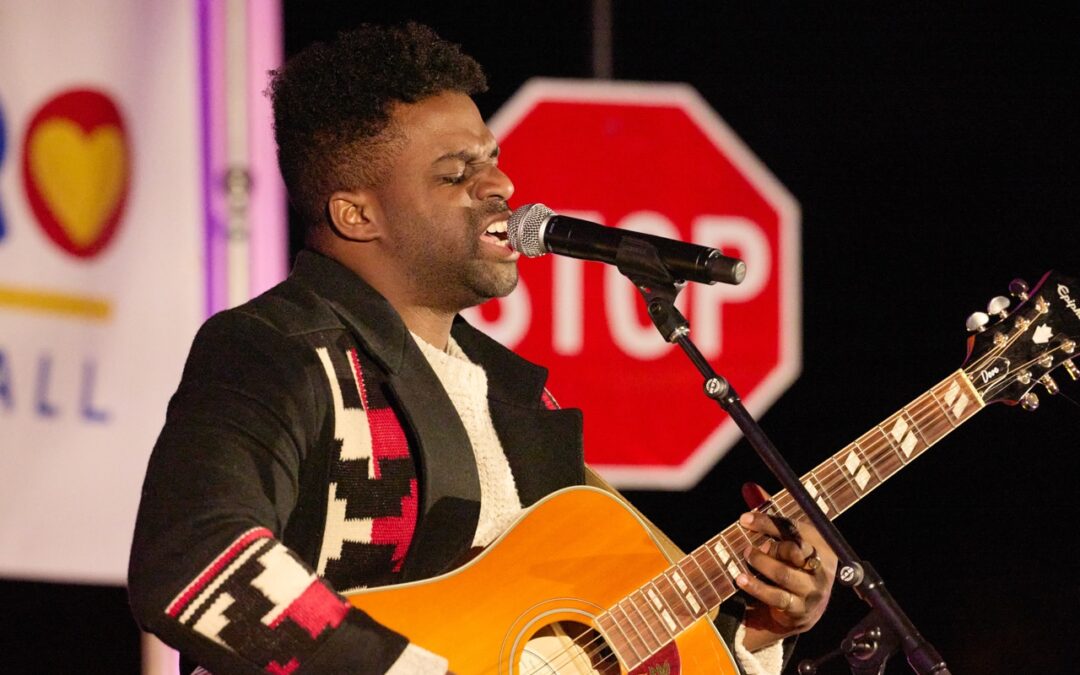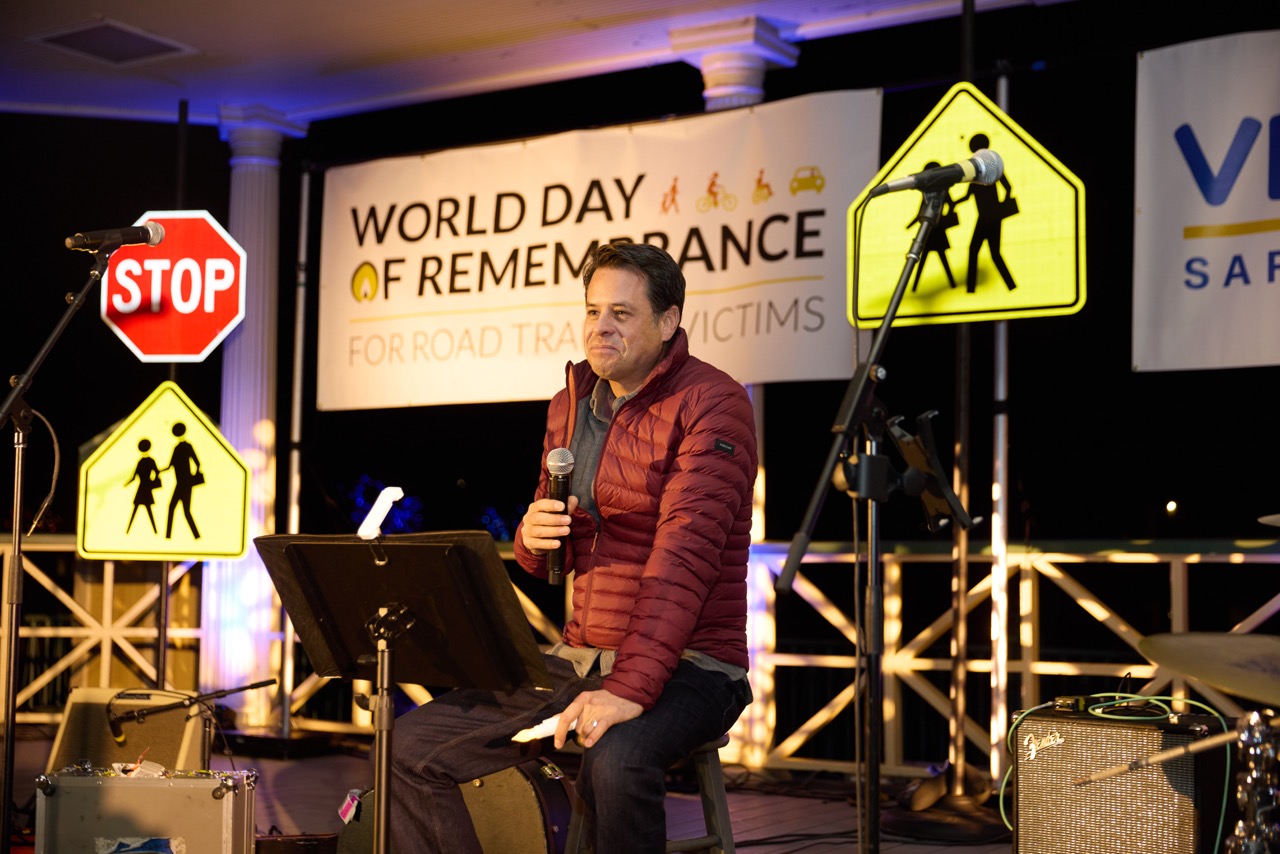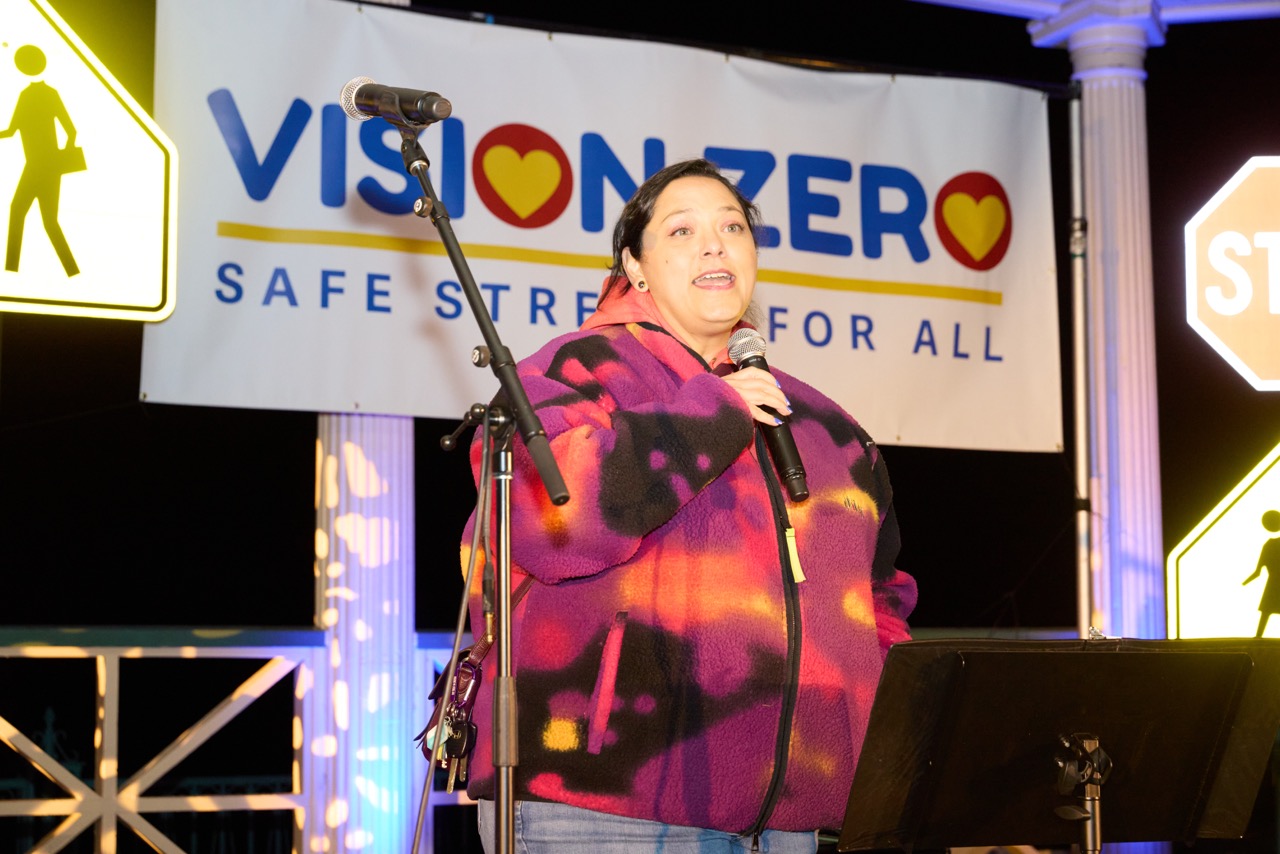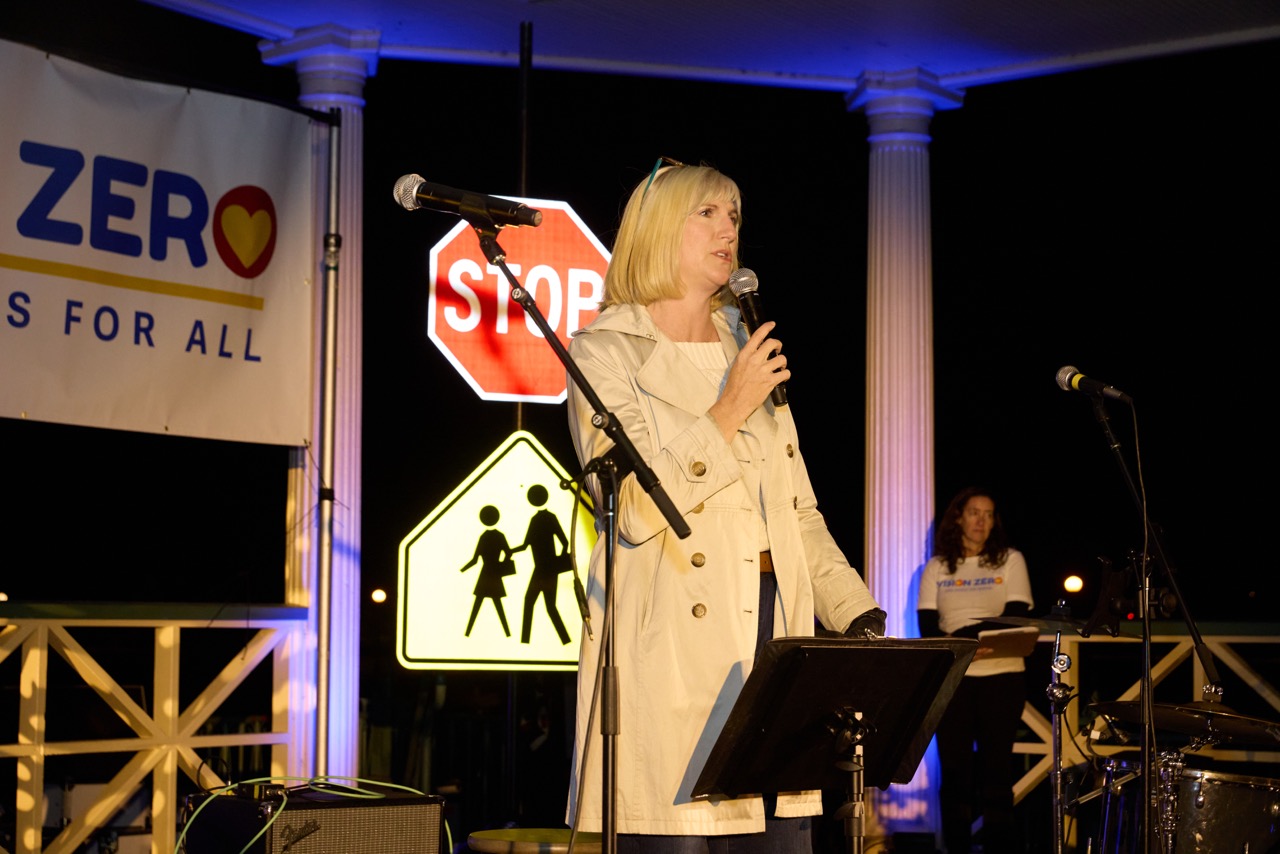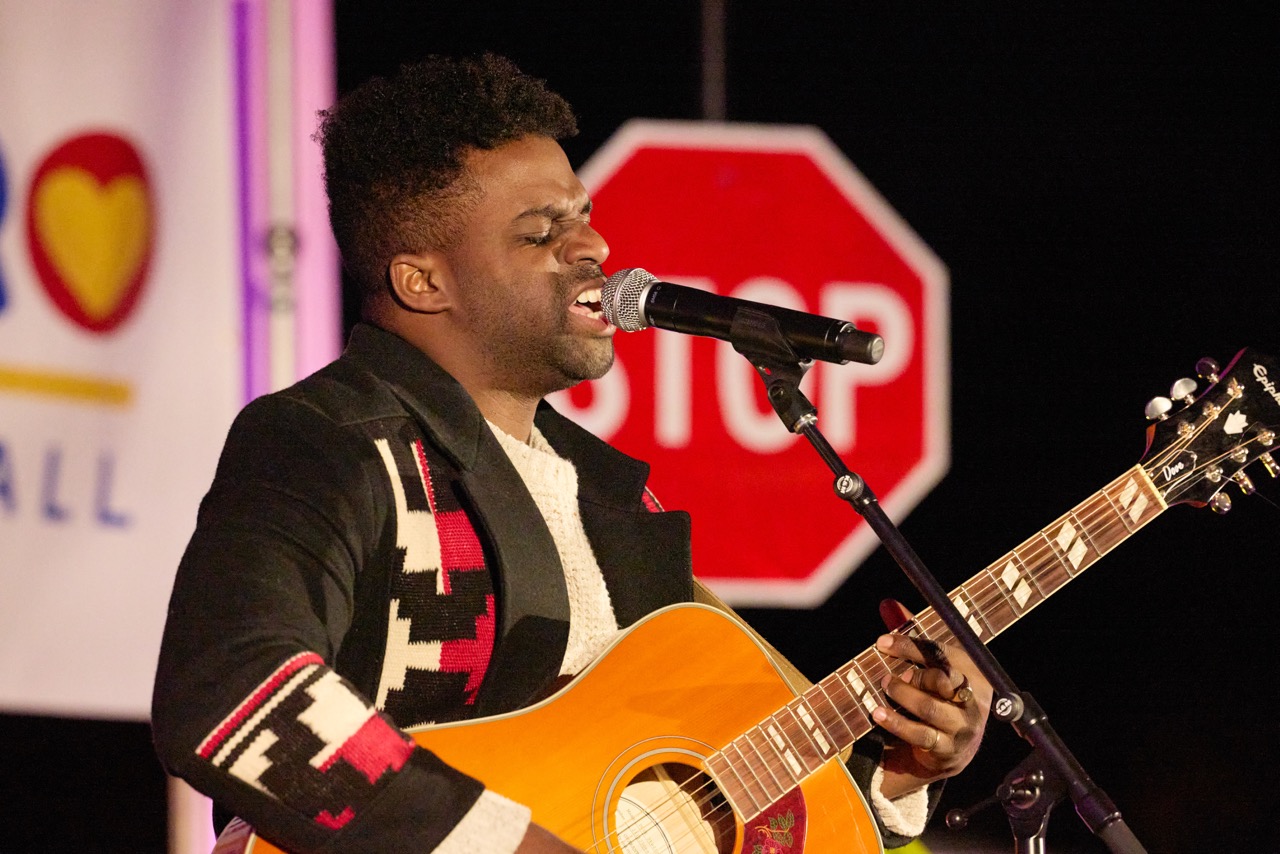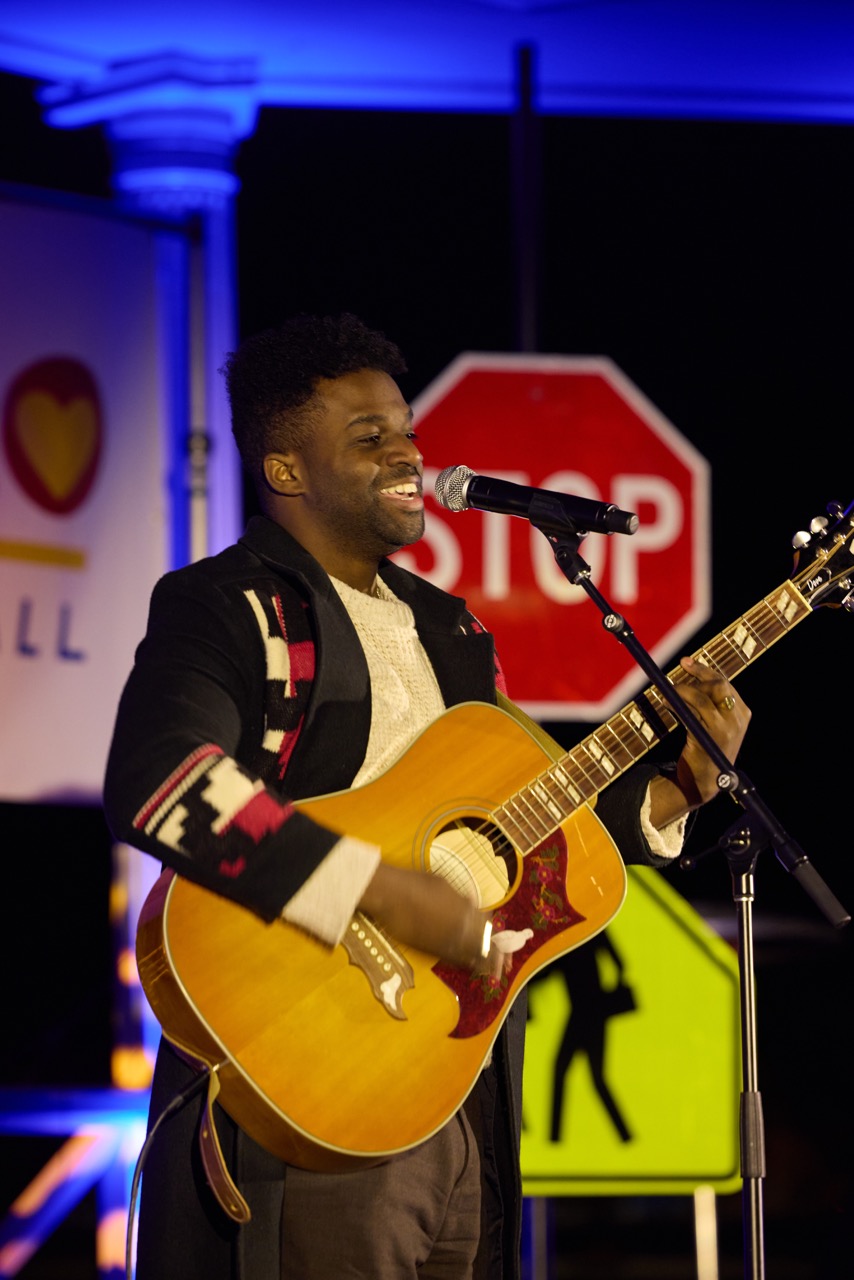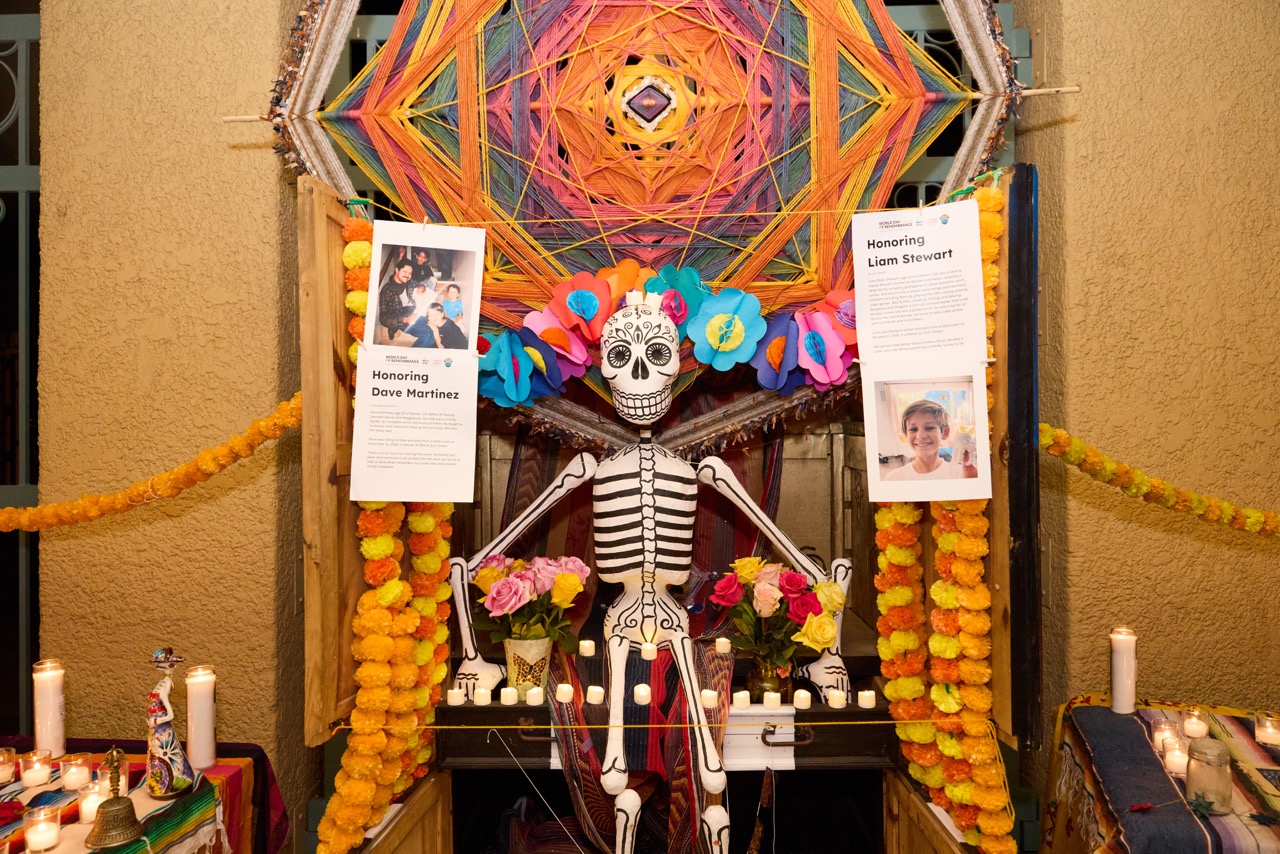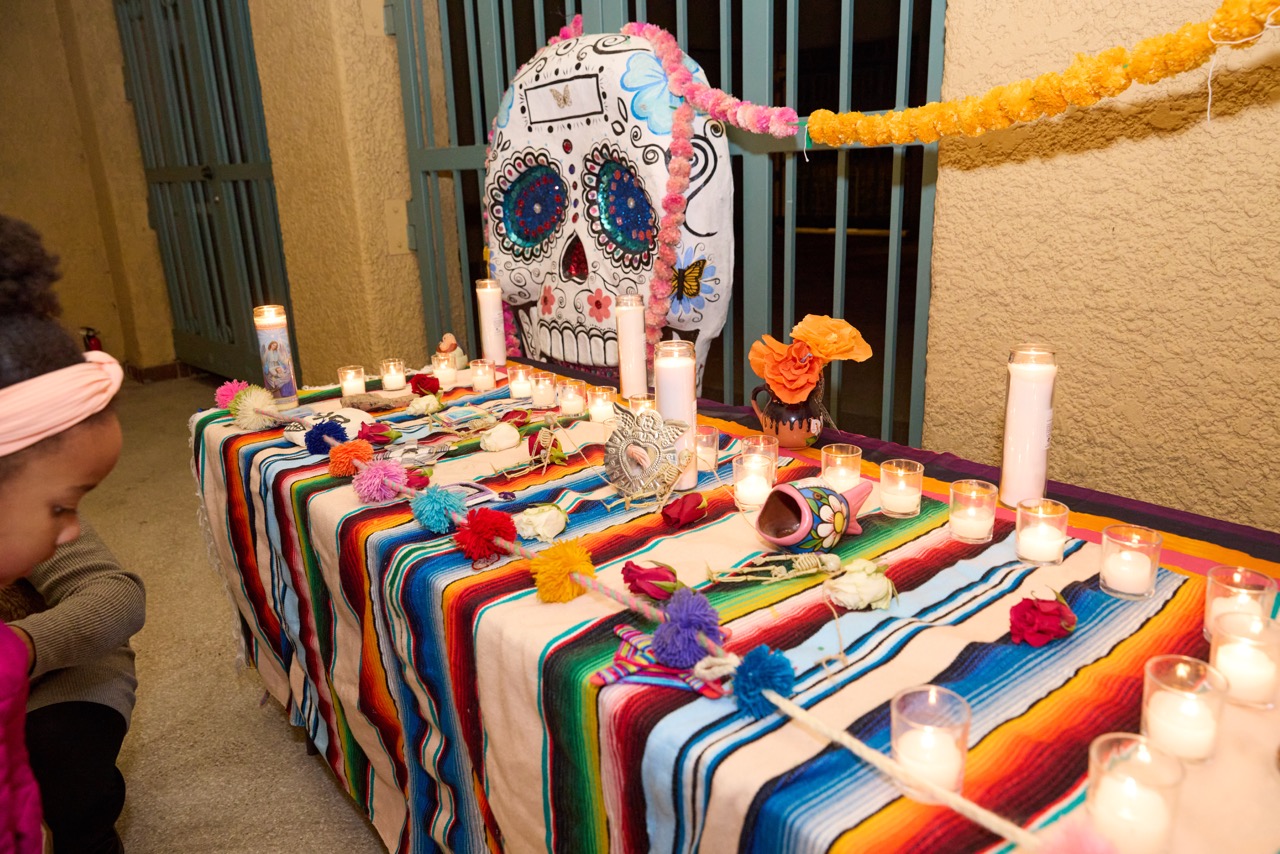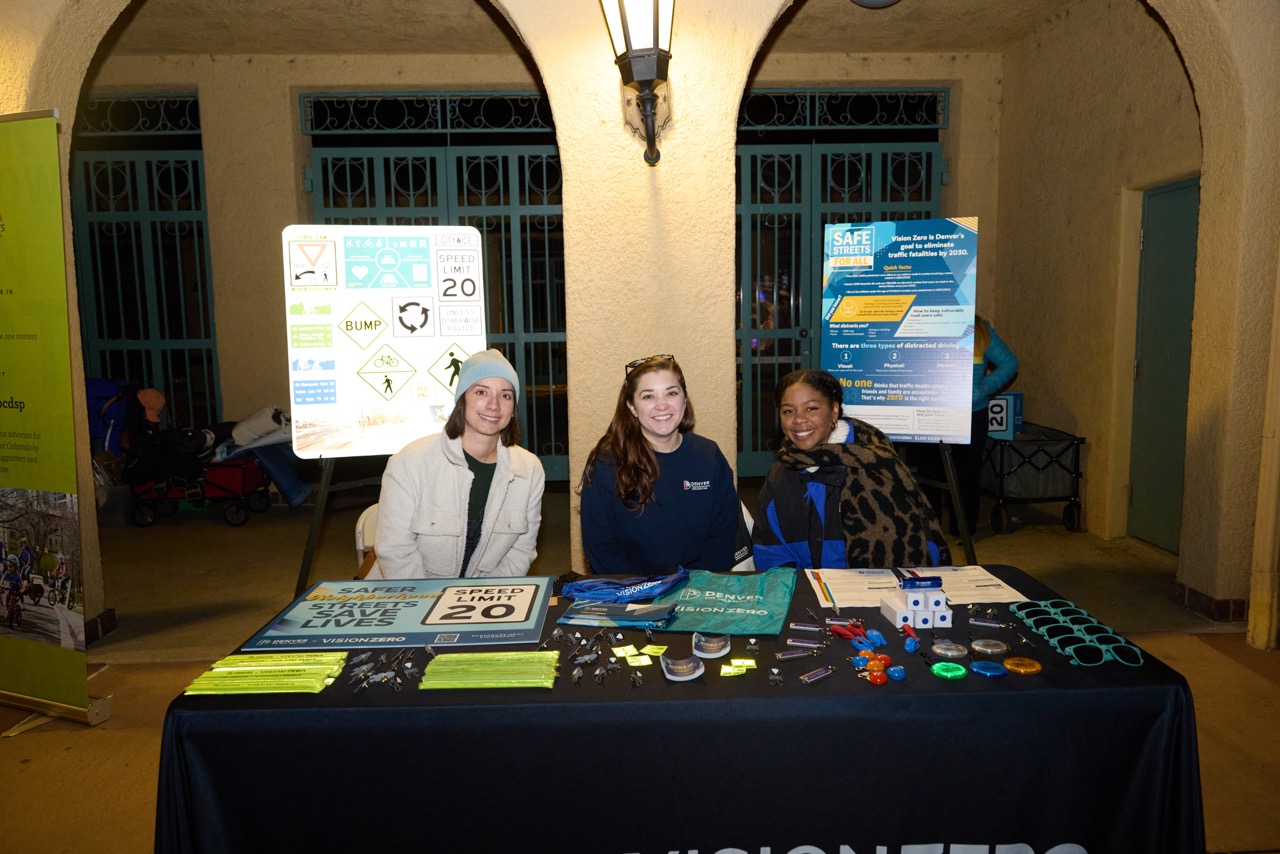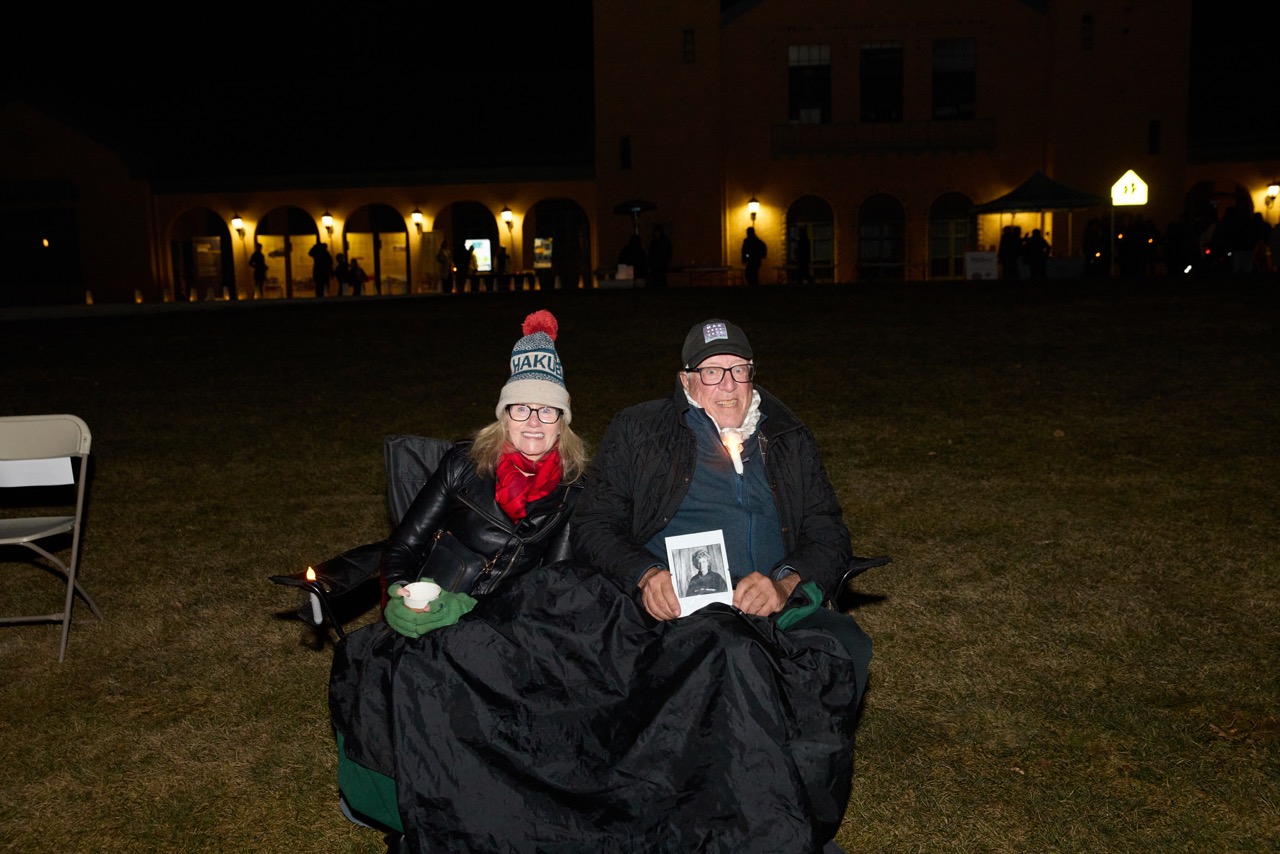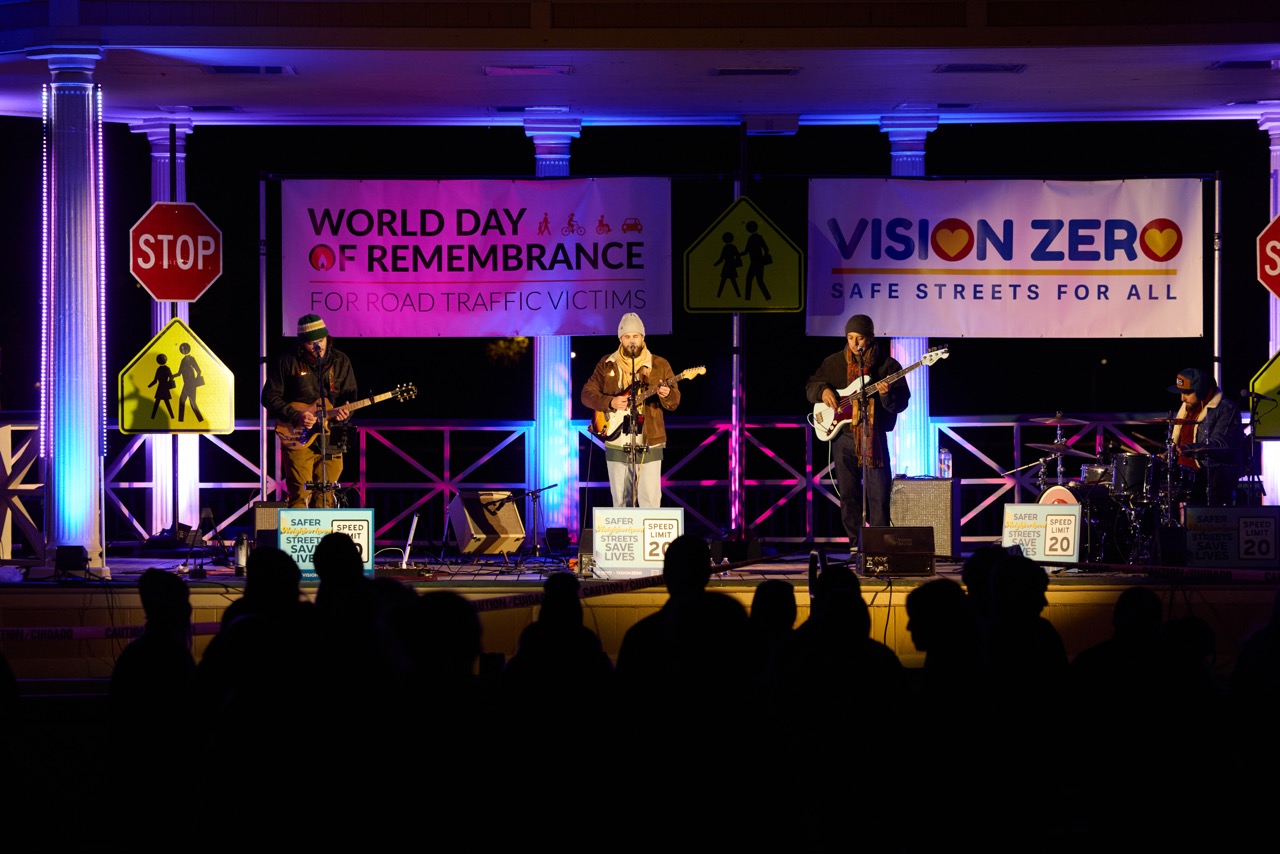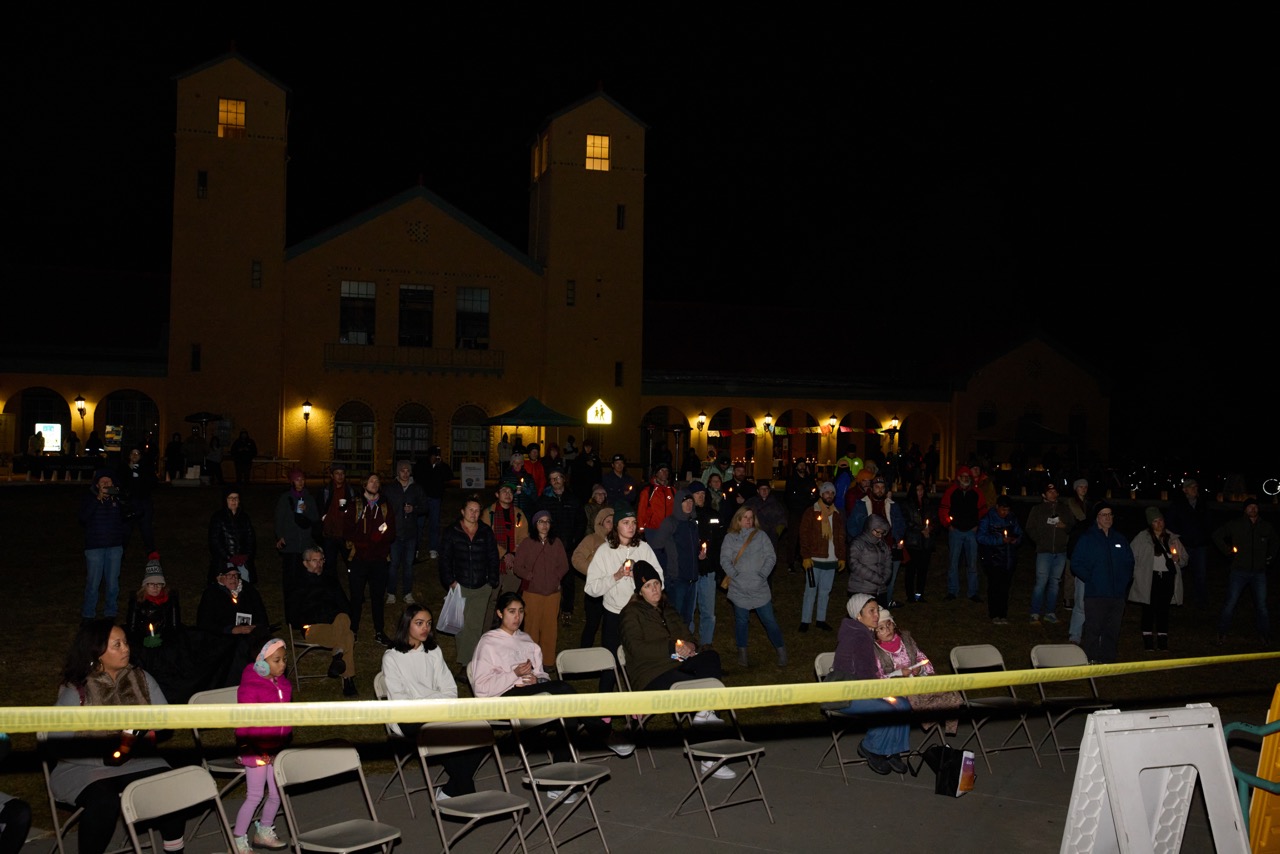By Mari Meier
On the third Sunday of November each year, we honor those we’ve lost to traffic violence and urge our decision-makers to enact tangible solutions for safer streets.
In past years on World Day of Remembrance for Road Traffic Victims, the Denver Streets Partnership has hosted candlelight vigils and somber remembrance walks with our community here in Denver. While it is important not to numb ourselves to the consequences of our dangerous road systems, memorial events can take a real emotional toll. We’ve heard from some community members who have lost a loved one that memorials sometimes feel like attending another funeral.
This year, we wanted to address the need for an event that holds space for grief, but also welcomes hope (as a discipline) and joy (as an act of resistance) into the space. Like a salve, hope and joy can soothe our wounds and renew our resolve to eliminate the atrocities of tomorrow. Real solutions to traffic violence are within reach, and when we come together to practice hope and speak with a collective voice, we strengthen the political will necessary to grasp these solutions.
Take Action
If you missed this event, you can still raise your voice with us by urging your state representatives to support legislation that actively addresses traffic violence in 2025.
To call joy into this year’s event, we joined forces with Bicycle Colorado to host a statewide event at Denver City Park featuring live music. In line with this bigger and bolder vision, we were fortunate for the opportunity to bring in nationally touring artist, Abraham Alexander, to headline the show. Joining us from Fort Worth, Texas, Abraham brought extra impact with his contemplative ballads and a personal connection to the cause, as he lost his mother in a car crash.
On the evening of Sunday, November 17, as people arrived at the City Park Pavilion plaza, the 40-degree weather did not go unnoticed. And yet, people continued to trickle in, greeting each other warmly and establishing a sense of perseverance that continued to build throughout the night.
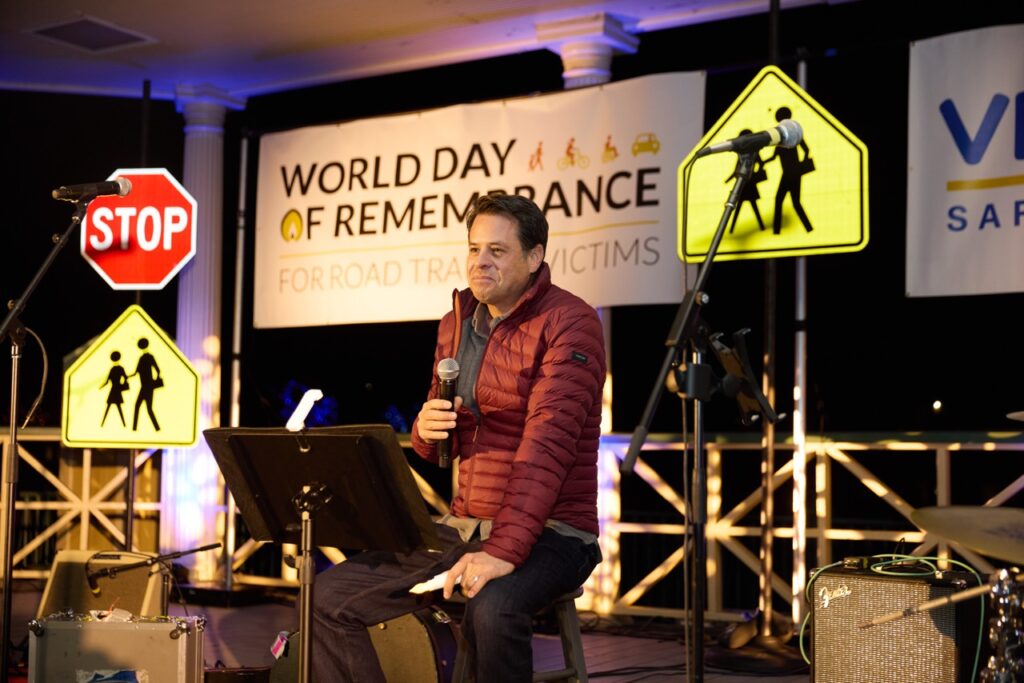 As the program began, people made their way toward the City Park bandshell, decorated with pedestrian-friendly traffic signs and multi-colored lighting. Safe streets advocate Josh Stewart took the stage to share the story of his son Liam, who was killed in a traffic crash at age 13 in Littleton. We’re so grateful to Josh for sharing about Liam. It felt important to hear this story, one of too many just like it, as a solemn reminder of why we had gathered.
As the program began, people made their way toward the City Park bandshell, decorated with pedestrian-friendly traffic signs and multi-colored lighting. Safe streets advocate Josh Stewart took the stage to share the story of his son Liam, who was killed in a traffic crash at age 13 in Littleton. We’re so grateful to Josh for sharing about Liam. It felt important to hear this story, one of too many just like it, as a solemn reminder of why we had gathered.
Jill Locantore, DSP’s Executive Director shared her remarks, followed by Amy Ford, Executive Director at the Denver Department of Transportation & Infrastructure (DOTI), and State Senator Julie Gonzales. The presence of City and State leaders was key in spreading our message that Vision Zero requires action at all levels of government, especially given that many of the most dangerous streets in Denver are also state highways. We’re grateful to Ford and Gonzales for joining us and acknowledging the traffic violence crisis in Denver and Colorado, and their unique, crucial influences on our path to achieving Vision Zero.
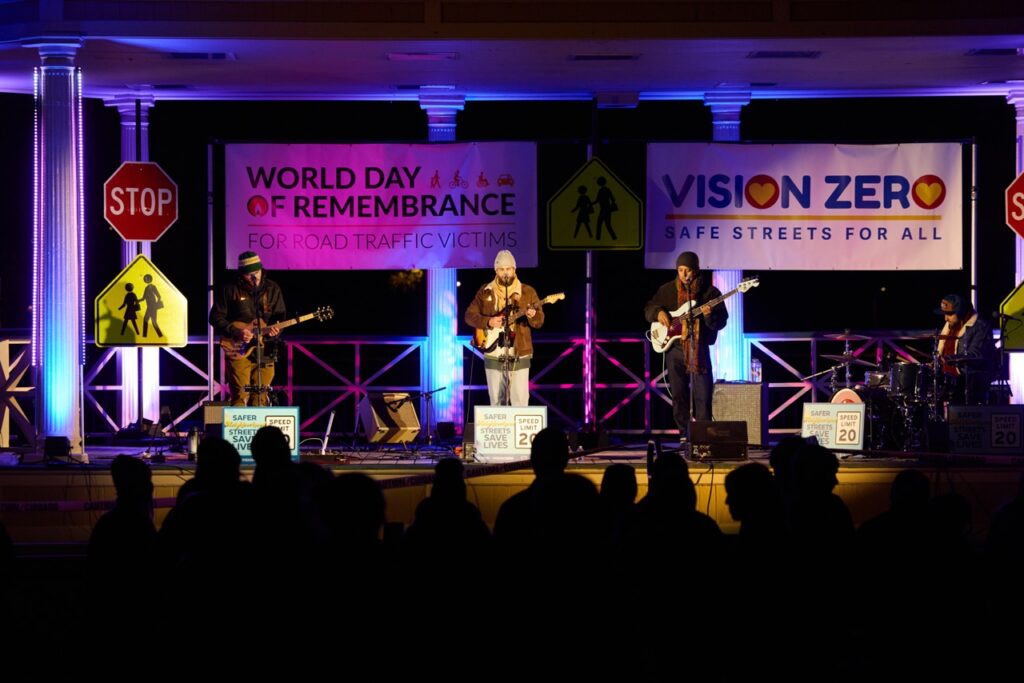 In a moment of silence, we watched 720 lights on the pillars of the bandshell light up, to hold space for the 720 Coloradans killed by traffic violence in 2023. With that, our headliner Abraham Alexander took the stage for an intimate set of his songs including Today, in which he sings about his mother. Between songs, Abraham spoke with the crowd about his life story and the loss of his mother, further connecting his full-hearted performance to a shared grief.
In a moment of silence, we watched 720 lights on the pillars of the bandshell light up, to hold space for the 720 Coloradans killed by traffic violence in 2023. With that, our headliner Abraham Alexander took the stage for an intimate set of his songs including Today, in which he sings about his mother. Between songs, Abraham spoke with the crowd about his life story and the loss of his mother, further connecting his full-hearted performance to a shared grief.
To finish out the evening, local band The Cheeks played a groovy curation of covers, getting people moving and reminding us of the strength and community we create in collective joy.
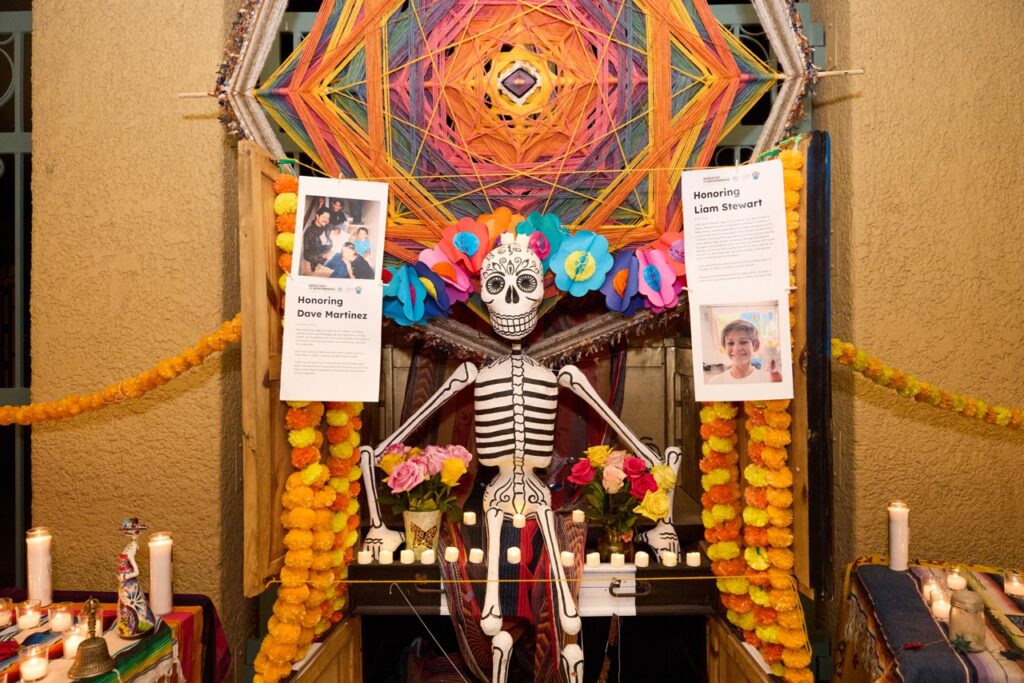 In addition to the live music and guest speakers, we were particularly grateful to Cal Duran for his beautiful ofrenda, or altar, which created both a vibrant and quiet space for people to take a moment and remember the loved ones we’ve lost on our roads in Denver, Colorado, and the world. With mental health professionals and therapy dogs from HOPE Animal Assisted Crisis Response, there was plenty of room to feel the weight of our inadequate road systems and the unacceptable tragedies they cause.
In addition to the live music and guest speakers, we were particularly grateful to Cal Duran for his beautiful ofrenda, or altar, which created both a vibrant and quiet space for people to take a moment and remember the loved ones we’ve lost on our roads in Denver, Colorado, and the world. With mental health professionals and therapy dogs from HOPE Animal Assisted Crisis Response, there was plenty of room to feel the weight of our inadequate road systems and the unacceptable tragedies they cause.
People at the event also had the opportunity to learn more about the root causes of traffic violence and how to eliminate it by reading educational displays and chatting with additional staff from DOTI. Ultimately, accessible traffic solutions are within reach, as long as the political will exists to enact them—Tell your state representatives to call for safer streets in the 2025 legislative session.
It is so important in our work as advocates to turn our experience of the world and all of its atrocities into a collective resolve to do what is necessary to change it. On World Day of Remembrance 2024 in Denver, Colorado, we held considerable grief, but we also found joy, hope, and the resolve to move forward together.
Visit our Flickr for more photos from this event:

